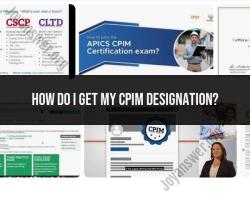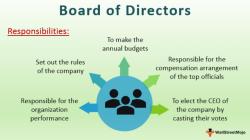What is business language skills?
Business language skills refer to the proficiency and effectiveness with which individuals communicate in a professional or business setting. These skills are essential for successful interactions in the workplace and are crucial in various business-related activities, such as negotiations, presentations, correspondence, and team collaboration. Business language skills encompass both written and oral communication and involve the use of language to convey ideas, information, and intentions clearly and appropriately within a business context.
Key components of business language skills include:
Professional Writing:
- Email Correspondence: Writing clear, concise, and professional emails.
- Reports and Proposals: Crafting well-organized and persuasive reports and proposals.
Verbal Communication:
- Meetings and Presentations: Effectively conveying ideas and information in meetings and presentations.
- Negotiation Skills: Engaging in productive and respectful negotiations.
Active Listening:
- Paying full attention to others during conversations, meetings, or presentations.
- Asking relevant questions to demonstrate understanding.
Vocabulary and Tone:
- Using appropriate business vocabulary and terminology.
- Adapting tone and language based on the audience and purpose.
Clarity and Conciseness:
- Expressing ideas clearly and concisely to avoid ambiguity.
- Avoiding unnecessary jargon or complex language that may be confusing.
Cross-Cultural Communication:
- Understanding and navigating cultural differences in communication.
- Adapting communication styles for diverse audiences.
Team Communication:
- Collaborating effectively with team members through written and verbal communication.
- Providing constructive feedback and receiving it positively.
Time Management:
- Communicating efficiently to respect time constraints in meetings and projects.
- Setting clear expectations regarding deadlines and deliverables.
Problem-Solving Communication:
- Articulating problems and proposing solutions clearly and logically.
- Collaborating with others to find effective resolutions.
Confidence and Professionalism:
- Conveying confidence in communication to inspire trust.
- Maintaining a professional demeanor in all forms of communication.
Adaptability:
- Adapting communication style to different situations, such as formal presentations, casual discussions, or written reports.
Digital Communication Skills:
- Effectively using digital communication tools, such as instant messaging, video conferencing, and collaboration platforms.
Networking and Relationship Building:
- Building and maintaining professional relationships through effective communication.
- Networking with colleagues, clients, and industry professionals.
Developing strong business language skills is essential for professional success as it enhances the ability to convey ideas, build relationships, and contribute to a positive and productive work environment. Continuous improvement in these skills is valuable for individuals at all levels within an organization.
What encompasses business language skills in professional settings?
Business language skills in professional settings encompass a broad range of abilities that enable effective communication in the workplace. Here's a breakdown of key aspects:
1. Clarity and Concision:
- Precise and concise communication: Avoid jargon, ambiguity, and excessive wordiness. Deliver your message clearly and directly, ensuring your audience understands your point.
- Tailoring language to audience: Adapt your communication style to your audience's level of understanding and background knowledge.
- Structured and logical presentation: Organize your thoughts and information logically, using headings, bullet points, and transitions to guide your audience.
2. Professionalism and Appropriateness:
- Formal tone: Maintain a professional tone, avoiding informal language, slang, or offensive language.
- Respectful and courteous communication: Treat colleagues, clients, and superiors with respect and courtesy. Use active listening, acknowledge contributions, and avoid interrupting.
- Cultural sensitivity: Be mindful of cultural differences in communication styles and avoid making assumptions or using offensive stereotypes.
3. Persuasion and Negotiation:
- Articulating your arguments: Present your ideas and proposals in a compelling and persuasive manner. Use data, evidence, and strong reasoning to support your claims.
- Active listening and understanding different perspectives: Actively listen to others' viewpoints and acknowledge their concerns. Be open to negotiation and finding win-win solutions.
- Effective questioning techniques: Use open-ended questions to gather information, clarify points, and build rapport.
4. Written Communication:
- Clear and concise writing: Write emails, reports, and proposals that are well-organized, grammatically correct, and free of typos.
- Formatting and professional appearance: Pay attention to document formatting, font styles, and overall presentation to maintain a professional image.
- Tailoring communication to different channels: Adapt your writing style for emails, reports, presentations, and other forms of written communication.
5. Non-Verbal Communication:
- Body language and eye contact: Maintain appropriate posture, eye contact, and facial expressions that convey confidence and professionalism.
- Active listening cues: Use nonverbal cues like nodding, leaning in, and maintaining eye contact to show that you are engaged and listening attentively.
- Projecting your voice: Speak clearly and confidently at an appropriate volume.
Additional Skills:
- Meeting and presentation skills: Effectively leading and participating in meetings, delivering presentations, and answering questions confidently.
- Conflict resolution skills: Addressing disagreements and misunderstandings in a constructive and professional manner.
- Teamwork and collaboration skills: Working effectively with others to achieve common goals.
Developing these business language skills is crucial for success in any professional setting. By mastering clear, concise, and professional communication, you can build trust, influence others, and achieve your goals.
Remember, effective business language skills are a continuous learning process. Be open to feedback, seek opportunities to practice, and adapt your communication styles to different situations and audiences.












